Civilizational Clash! The Tyranny of the New World Order
Morris van de CampSamuel P. Huntington
The Clash of Civilizations & the Remaking of World Order
New York: Simon & Schuster, 1996
From 1994 to 1996, the Russians waged war against the Chechens. In 1999 the war resumed, ending in 2000 with the Russians firmly in control of the ruins of Chechen cities. In 2008, the Russians attacked Georgia and set up the independent state of Ossetia. Other than the warmongers and anti-Russians in the United States government, nobody in America or Western Europe really cared.
In 2022, the Russian army has now attacked Ukraine. The Russian attack is being met with intense hostility across North America and Western Europe. When oil prices spiked due to the crisis, oil producers Saudi Arabia and the United Arab Emirates refused to take calls from US government officials who want them to increase production. Furthermore, the UAE has refused to condemn the Russian invasion at the United Nations, although American troops have consistently defended that nation throughout several war scares with Iran. What, you might ask, is going on? The answer can be found in Samuel Huntington’s 1996 book, The Clash of Civilizations.
Huntington divided the world into nine different civilizations. They are:
Western: North America, Australia, New Zealand, and Western Europe. This civilization is influenced by the ancient cultures of Egypt, Canaan, Greece, and Rome. Religiously, it is influenced by the Roman Catholic Church and the Protestant Reformation. For example, John Calvin (Protestant) and Ignatius Loyola (Catholic) both attended the University of Paris. The West is also influenced by the Enlightenment and the Renaissance.
Latin American: North America south of the Rio Grande River, including South America and most of the West Indies. Latin American civilization is very similar to Western civilization in many ways, but its religious structure is entirely Catholic, heavily influenced by the Catholicism of sixteenth-century Spain. There is much in the way of cultural and racial differences within Latin America as well. In some parts of Latin America the population is no different from the rest of Western civilization; in other places, the population is mostly indigenous Amerindians, mestizos, or other non-white mixtures. “Latin America could be considered either a sub-civilization within Western civilization or a separate civilization closely affiliated with the West and divided as to whether it belongs in the West” (p. 46).
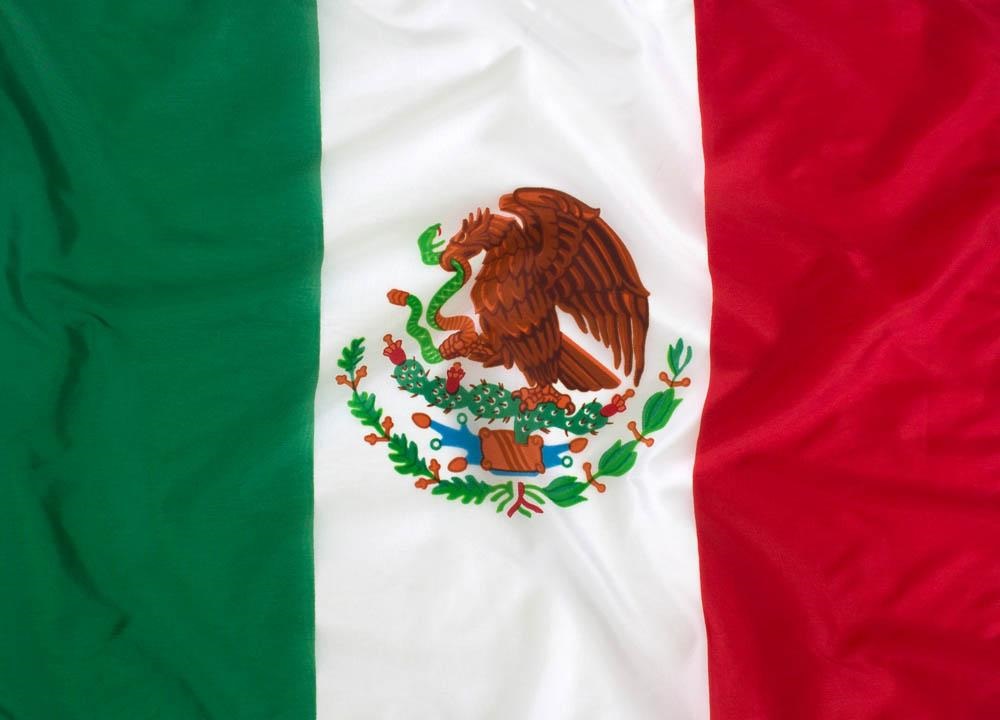
The Mexican flag is a good representation of Latin American civilization. The tricolor and layout in the center are very European and Western, but the eagle killing the rattlesnake on a cactus harkens back to the Aztec Empire.
Orthodox: This civilization is also very close to Western Civilization, but it is less influenced by ancient Rome than its Greek successor, the Byzantine Empire. Orthodox civilization did not experience the Reformation, Renaissance, or the Enlightenment. Its original center of gravity, Constantinople, was conquered by the Ottoman Turks in 1453, and Russia was under the rule of the Mongols for nearly two centuries. Both of these conquests further separated Orthodox civilization from the West.
Islamic: “Originating in the Arabian peninsula in the seventh century A.D., Islam rapidly spread across North Africa and the Iberian peninsula and also eastward into central Asia, the Subcontinent, and Southeast Asia. As a result, many distinct cultures or sub-civilizations exist within Islam, including Arab, Turkic, Persian, and Malay.” (p. 45)
Sinic: A distinctly Chinese civilization that goes back to at least 1500 BC. This civilization is heavily influenced by Buddhism, Taoism, and Confucianism. Sinic civilization is comprised of more than China, though, and includes Korea, Taiwan, and Vietnam.
Japanese: This civilization is the offspring of Sinic civilization and it emerged between 100 and 400 AD. Japanese civilization is orderly, efficient, and creative.
Hindu: This civilization is centered on the Indian subcontinent since the second millennium BC. Its religion is a living example of the ancient faith of the Indo-Europeans, and it consists of sharply-defined social classes.
Buddhist: This civilization is bifurcated into the Theravada Buddhist nations of Burma, Cambodia, Thailand, and Laos, and the Lamaist Buddhist lands of Tibet, Mongolia, and Bhutan.
African: Sub-Saharan Africa. Pockets of this cultural zone also exist in the various sub-Saharan ghettos of the West. African civilization is influenced by ancient tribal religions like Voodoo and Christianity. This civilization produces few cultural works of value and is highly tribal. Ethiopia is part of African civilization, but is above and separate from it in many ways. Many of the people there speak a Semitic Language, and the nation has cultural and economic ties to Greece and the Near East that stretch back thousands of years.

You can buy Greg Johnson’s The White Nationalist Manifesto here
Ethiopia is an example of what Huntington calls a lone country. These countries are nations which stand apart from their respective civilization in some way. Iran is also a lone country; it is a Shi’a nation in a mostly Sunni Islamic civilization. The lone country of Haiti is likewise more African than Latin American, but not fully in one or the other civilization.
Huntington argues that most civilizations have a leading polity — a core state. The most powerful part of Western civilization is the United States, with other centers of gravity in Britain and the French-German core of the European Union. In Orthodox civilization it is Russia, and the Sinic world is led by China. Not all civilizations are led by one particular country, though. Latin American civilization could be said to be led by Spain, but the Spanish have chosen to be Western. Brazil could take the lead, but it is Portuguese-speaking, so it is too different from the Spanish-speaking nations around it to assume that role. Islamic civilization has no core state leading it, and neither does African.
It is difficult for knowledge and philosophical ideas to spread from one civilization to another. For example, Buddhism took 600 years to be transmitted from India to China. Printing was developed in China in the eighth century AD, and movable type in the eleventh century, but that technology didn’t reach Europe — as the case can be made that it was independently developed there — until the fifteenth century. Likewise, gunpowder arose in ninth-century China, but only got to Europe in the fourteenth century.
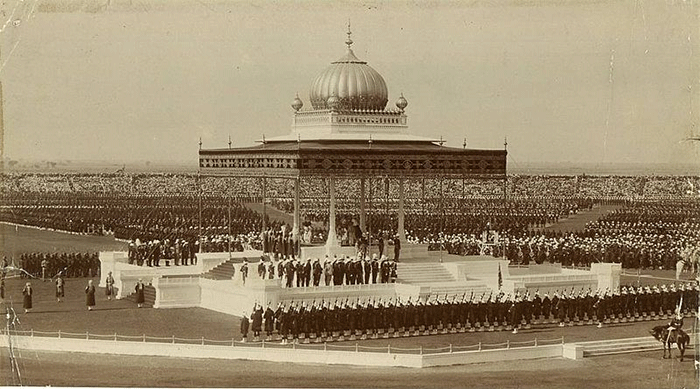
King Edward VII’s coronation in India in 1903. In the early twentieth century, Western civilization dominated all others.
Reactions to the Rise of the West
The Europeans greatly improved the use of the Chinese printing press and gunpowder. Since 1492, the West has risen above and, apart from a few exceptional areas, completely dominated the other civilizations. During the Cold War, Western civilization led a coalition of nations that crossed civilizational boundaries against the Communist bloc, which had also crossed civilizational boundaries.
When the Cold War ended, an idea arose that global society had reached the so-called End of History. This describes an era when liberal, free-market economics and democracy prevail across a peaceful world. The End of History turned out to be a blip, however. Cross-civilizational conflict started immediately after the Cold War ended.
The first thing one needs to recognize in this clash is that all the other civilizations must react to Western civilization. The other civilizations have reacted in three ways:
Rejectionism: Japan did this after their first contact with the west in 1542 until the middle of the nineteenth century. China also attempted to close its society off from the West, but nevertheless came to be dominated by it after the Opium War of 1839-1842.
Kemalism: This is when a civilization — or part of a civilization, as in the case of Turkey — transforms itself along Western lines. The Turks changed their alphabet, their way of government, and general outlook to match that of Europe and the West, for example. Czar Peter the Great likewise attempted this in Russia. Some Japanese and Chinese intellectuals unsuccessfully suggested this as well. Nations that follow the Kemalist reaction end up as torn countries: “the people of torn countries agree on who they are but disagree on which civilization is properly their situation” (p. 138). Turkey, Russia, and Mexico fit into this category, but none of these nations have really shifted from one civilization to the other.
Reformism: This reaction to the West rejects the two courses of action described above. Reformers embrace technological modernity while preserving the central values, practices, and institutions of their society’s indigenous culture.
Western civilization reached its apogee between 1918 and 1923, when just a few Western political leaders on the “winning” side of the First World War were able to divide the world according to their own wishes. Since then, it’s been a slide downwards. The key problems are a low white birth rate, a lowered work ethic, lack of savings, de-industrialization, substance abuse, and other pathologies.
On the other hand, Western civilization continues to lead in space technology, science, finance, control of the sea lanes, and aviation. It can also project military power around the world.
The Emerging Rivals
The key problem for Western civilization has been the rise of two rival civilizations, Sinic and Islamic, and their successful embrace of reformism. Indeed, reformism is the most effective way for non-Western peoples to wage civilizational competition. Muslim youths can drink Coke and watch soccer on a TV made in Japan while conspiring to bomb a European or American airline. Furthermore, “democracy” doesn’t make a society “Western” in any way. Voters in different civilizations vote for the candidate that is truer to their civilizational values. The idea of a “universal civilization,” developed by anglophile V.S. Naipaul, is simply not realizable.
Sinic civilization’s rise is entirely due to industrialization and economic growth. American diplomatic and military policy allowed and encouraged industrialization in South Korea, and American plutocrats in the early 1990s rigged the system to encourage China to industrialize. In 1970, South Koreans looked upon the Americans with favor, but by 1988, they started to become hostile and anti-American. It all comes down to manufacturing and money flows. In the mill-towns of America’s heartland, the factories are gone and everything is in decline. Across Sinic civilization, factories have been springing up from nowhere, the cities are growing, and ultra-modern high-rises are being built.
Islamic civilization has grown in power due to its high birthrate that began in the mid-twentieth century and only recently started to stall. The problems between the West and Islam are long-standing.
Huntington writes:
Some Westerners, including President Bill Clinton, have argued that the West does not have problems with Islam but only with violent Islamist extremists. Fourteen hundred years of history demonstrate otherwise. The relations between Islam and Christianity, both Orthodox and Western, have often been stormy. Each has been the other’s Other. The twentieth-century conflict between liberal democracy and Marxist-Leninism is only a fleeting and superficial historical phenomenon compared to the continuing and deeply conflictual relation between Islam and Christianity. At times, peaceful coexistence has prevailed; more often the relation has been one of intense rivalry and of varying degrees of hot war. (p. 209)
Islamic Civilization strikes out violently upon its frontiers. Islamic attacks on all the other civilizations are universally known and so numerous that enumerating the particulars here is un-necessary. Within Islamic Civilization there is also considerable violence. Huntington writes, “In the early 1990s Muslims were engaged in more intergroup violence than were non-Muslims, and two-thirds to three-quarters of inter-civilizational wars were between Muslims and non-Muslims. Islam’s borders are bloody, and so are its innards. (p. 257)
Intra-Islamic loyalty is U-shaped: Muslims are loyal to their immediate family and clan, less loyal to their government, and very loyal to their civilization.

The attacks of September 11, 2001 were merely a recent manifestation of Islamic civilization’s hostility towards other civilizations.
Civilizational Fault Lines & Cleft Nations
There are nations or groups of nations that clearly fall into one civilization or another. These are member nations. Egypt is a member nation of Islamic civilization. East and West Germany were both Western. When they unified after the Cold War, there were few issues between them aside from those of economic policy.
Then there are cleft countries. These nations are those whose territory stands along a civilizational fault line. Most polities that have been divided between two civilizations since the end of the Cold War have fallen apart or undergone ferocious civil wars. Sudan divided along civilizational lines in 2011, and Sri Lanka had a cross-civilizational civil war that lasted for 26 years.
Yugoslavia was another cleft country. Three civilizational fault lines overlapped in that Communist polity. When the Cold War ended, polarization started immediately. Moderates on the political scene were replaced by radicals. Then, as the fighting started, the small nations made appeals to the larger nations within their civilization. The Western nation of Croatia was particularly successful in this.
Huntington writes:
The response of the West [to Croatia’s appeals for aid] was defined by Germany, and the response of Germany was in large part defined by the Catholic connection. The Bonn government came under pressure to act from the German Catholic hierarchy, its coalition partner the Christian Social Union party in Bavaria, and the Frankfurter Allgemeine Zeitung and other media. The Bavarian media, in particular, played a crucial role in developing German public sentiment for recognition.
“Bavarian TV,” Flora Lewis noted, “much weighed upon by the very conservative Bavarian government and the strong, assertive Bavarian Catholic church which had close connections with the church in Croatia, provided the television reports for all of Germany when the war [with the Serbs] began in earnest. The coverage was very one-sided.” The German government was hesitant about granting recognition, but given the pressures in German society it had little choice.” (pp. 281-282)
So, CroatiaWestern made an appeal to BavariaWestern, which in turn made an appeal to GermanyWestern, that ultimately got the United KingdomWestern, FranceWestern, and the USWestern on their side. Likewise, SerbiaOrthodox successfully appealed to GreeceOrthodox and RussiaOrthodox. For their part, Bosnian MuslimsIslamic appealed to TurkeyIslamic and Saudi ArabiaIslamic, receiving funding and support.
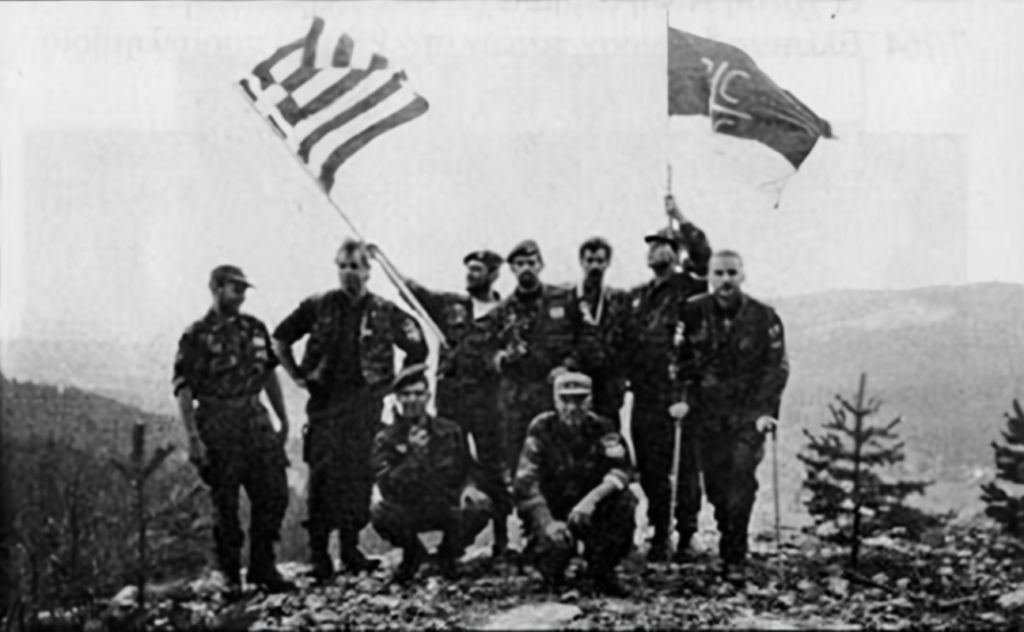
Greek volunteers in the Yugoslav Wars. The flag on the right has a symbol originating in the Byzantine Empire, the original cultural unit of Orthodox civilization.
NATO & the Clash of Civilizations
During the Cold War, the United States and Great Britain surrounded the Communist bloc with several defensive treaty organizations. There was the Central Treaty Organization (CENTO), the Southeast Asia Treaty Organization (SEATO), and the North Atlantic Treaty Organization (NATO). Of the three organizations, only NATO still exists. The other two perished before the Cold War ended. The CENTO organization dissolved because of the civilizational clash that was Iran’s Islamic Revolution, and SEATO came unglued in an absence-of-mind sort of way.
The case can be made that CENTO and SEATO fell apart because its members were in different civilizations. NATO continued to exist because most of its members are squarely rooted in Western civilization.
But NATO also nearly came apart along civilizational lines in 1974. The GreekOrthodox government wished to annex CyprusOrthodox. There was a coup on July 15 of that year. However, the Turkish CypriotsIslamic resisted, and five days later the TurkishIslamic military invaded the island and set up Northern Cyprus as a Turkish Cypriot ethnostate. A great deal of ethnic cleansing and forced deportations followed, and today the island is effectively divided.
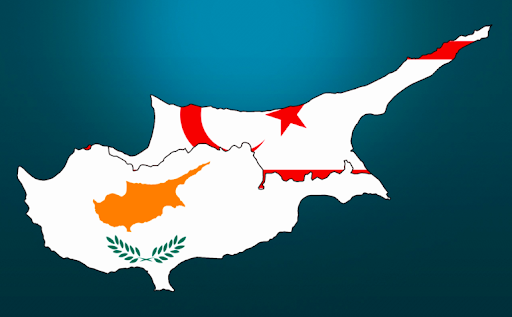
In 1974, Cyprus effectively divided into two separate ethnostates along a civilizational divide. The crisis was a terrible shock to NATO.
After the Cold War ended, NATO’s civilizational issues became an issue again when Greece and Turkey wound up supporting opposite sides in the Yugoslav Wars, and they were both opposed to the creation of the Western-backed nations of Slovenia and Croatia.
Of this, Huntington writes:
During the Cold War, Greece and Turkey were in NATO, Bulgaria and Romania were in the Warsaw Pact, Yugoslavia was nonaligned, and Albania was an isolated sometime associate of communist China. Now these Cold War alignments are giving way to civilizational ones rooted in Islam and Orthodoxy. Balkan leaders talk of crystallizing a Greek-Serb-Bulgarian Orthodox alliance. The “Balkan wars,” Greece’s prime minister alleges, “. . . have brought to the surface the resonance of Orthodox ties. . . . this is a bond. It was dormant, but with the developments in the Balkans, it is taking on some real substance. In a very fluid world, people are seeking identity and security. People are looking for roots and connections to defend themselves against the unknown.” (p. 126)

You can buy The World in Flames: The Shorter Writings of Francis Parker Yockey here.
NATO has continued to expand since Huntington wrote the book in 1996. He argued that accepting Western nations such as Poland and the Baltics and bringing in Orthodox nations would also bring about more internal friction. Since then, NATO has indeed incorporated Poland and the Baltics, along with AlbaniaIslamic and the Orthodox nations of Bulgaria, Montenegro, Romania, and Macedonia. And it was the possibility of bringing Ukraine into NATO that sparked the present war.
Ukraine
Russia and Ukraine are nations every bit as influenced by Viking settlers as England and Normandy, but Russia has more Mongol and Tartar influence and Ukraine has less. Western Ukraine also has very deep connections with Western civilization.
Concerning Ukraine, Huntington wrote:
Ukraine . . . is a cleft country with two distinct cultures. The civilizational fault line between the West and Orthodoxy runs through its heart and has done so for centuries. At times in the past, western Ukraine was part of Poland, Lithuania, and the Austro-Hungarian Empire. A large portion of its population have been adherents of the Uniate Church which practices Orthodox rites but acknowledges the authority of the Pope. Historically, western Ukrainians have spoken Ukrainian and have been strongly nationalist in their outlook. The people of eastern Ukraine, on the other hand, have been overwhelmingly Orthodox and have in large part spoken Russian. (p. 165)
This division led to one war starting in 2014 and another in 2022. Westerners have overwhelmingly begun supporting Ukraine against Russia. While connections between, say, Sinic civilization and the West are few and fraught with hostility and mistrust, the relationship between Ukrainians and other Westerners are large and varied. For example, the United States and Ukraine are connected in terms of their militaries, agricultural industry, religious institutions (both Catholic and Protestant), and political connections ranging from the far Left to the far Right.
Meanwhile, while NATO appears to be unified and there is all sorts of excitement about the Russo-Ukrainian War, it is important to remember that all wars start out with cheers and flowers and end in tears. Additionally, NATO still has considerable civilizational splits. PolandWestern is aggressively sending aid to Ukraine and lobbying the other members, especially the United StatesWestern, to do more. TurkeyIslamic is likewise providing armed drones to aid in Ukraine’s defense. BulgariaOrthodox and GreeceOrthodox remain unenthusiastic as seen through the smoke of the mainstream media’s sensationalist reporting. SerbiaOrthodox, which is not a member of NATO but lies in the middle of the bloc, is very pro-Russian.
Ending the war will be quite difficult. Should Russia triumph by force of arms and put down a possible Ukrainian insurgency, Ukraine will be absorbed as a reluctant satrapy into the Russian empire, and that will be that. But should Ukraine manage to effect a stalemate that changes Russian attitudes, a peace treaty will be negotiated.
Huntington writes:
Fault line wars are almost never halted by direct negotiations between primary parties alone and only rarely by the mediation of disinterested parties. The cultural distance, intense hatreds, and mutual violence they have inflicted on each other make it extremely difficult for primary parties to sit down and engage in productive discussion looking toward some form of ceasefire. The underlying political issues, who controls what territory and people on what terms, keep surfacing and prevent agreement on more limited questions. . . . The Pope could successfully mediate the Argentine-Chilean boundary dispute. In conflicts between groups from different civilizations, however, there are no disinterested parties. Finding an individual, institution, or state whom both parties think trustworthy is extremely difficult. (pp. 291-292)
The situation in Ukraine is unclear and the future is uncertain, but should they hold the line and Russia sue for peace, I propose that peace should be mediated by the Greek government. That nation is both in NATO and is part of Orthodox civilization. There doesn’t seem to be any anti-Russian hysteria in Greece, as in the American Deep State or in the Polish government.
Regardless, the clash of civilizations is here to stay. It is indeed the tyranny of the New World Order.
* * *
Counter-Currents has extended special privileges to those who donate $120 or more per year.
- First, donor comments will appear immediately instead of waiting in a moderation queue. (People who abuse this privilege will lose it.)
- Second, donors will have immediate access to all Counter-Currents posts. Non-donors will find that one post a day, five posts a week will be behind a “paywall” and will be available to the general public after 30 days.
To get full access to all content behind the paywall, sign up here:
Paywall Gift Subscriptions
 If you are already behind the paywall and want to share the benefits, Counter-Currents also offers paywall gift subscriptions. We need just five things from you:
If you are already behind the paywall and want to share the benefits, Counter-Currents also offers paywall gift subscriptions. We need just five things from you:
- your payment
- the recipient’s name
- the recipient’s email address
- your name
- your email address
To register, just fill out this form and we will walk you through the payment and registration process. There are a number of different payment options.
Civilizational%20Clash%21%20The%20Tyranny%20of%20the%20New%20World%20Order
Enjoyed this article?
Be the first to leave a tip in the jar!
Related
-
Brian Moore’s Black Robe
-
Masscult and Midcult Revisited
-
The Significant and Decisive Influence that Leads to Wars
-
Get to Know Your Friendly Neighborhood Habsburg
-
Crusading for Christ and Country: The Life and Work of Lieutenant Colonel “Jack” Mohr
-
Nowej Prawicy przeciw Starej Prawicy: Przedmowa
-
Stalin’s Affirmative Action Policy
-
Doxed: The Political Lynching of a Southern Cop
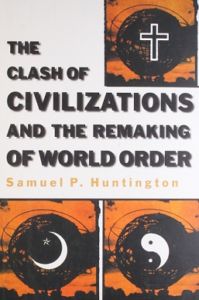
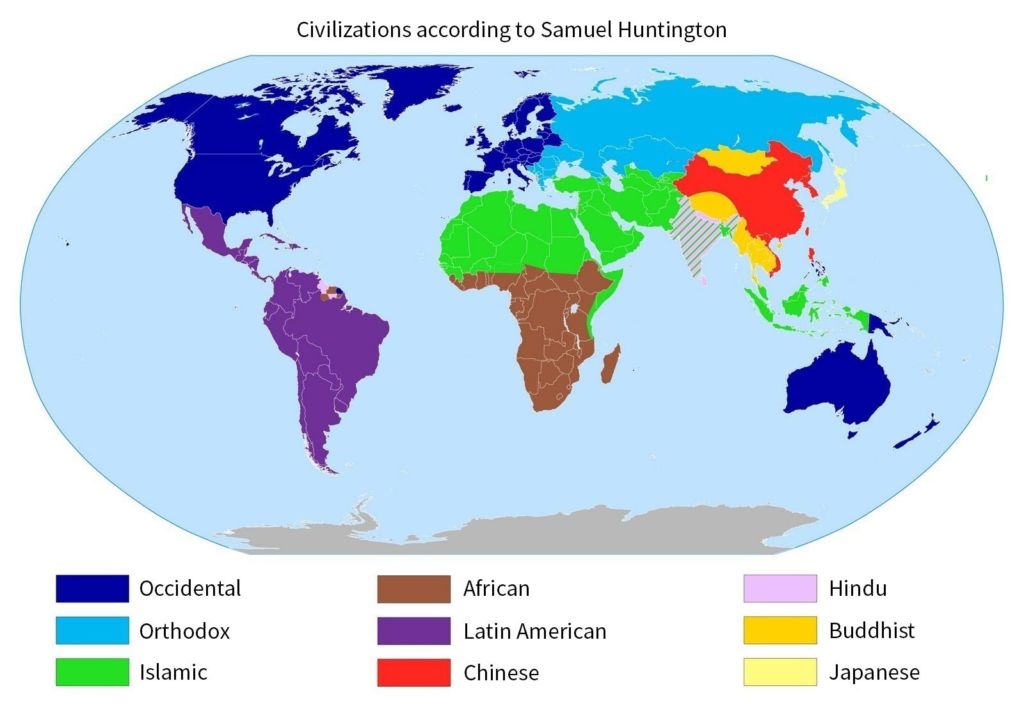
16 comments
Hundreds of millions of unproven mRNA vaccines have already been injected into the arms of white western civilization. So we are already far down the road to perdition. The average citizen is in a state of total demoralization. Our children are shockingly ignorant having been out of school for years, and most have been throughly traumatized. In America, thousands die every month shot to death in the cities by masked criminals. Chinese-mexican fentanyl is decreasing the life expectancy. America has become the great death continent. I pray there is a racial awakening before it is too late.
Ukraine is in a tough spot. I think the best outcome would be for them to declare themselves a neutral country like Belgium was before WW1, but with much stronger internal militarization as arms keep peace. Perhaps Ukraine will be a second “graveyard of empires” as NATO and Russia have both proven to be trouble makers there and are now taking a major hit for it.
I have an old distrust for the class of “prestigious” professors. But Samuel P. is the epitome of incompetence, pseudo-science, dishonesty, and no understanding and knowledge about the subject he is writing/advising about.
Of course I am referring to the fault line between West and the “Orthodox” world.
How can anyone in his right mind consider that Greece, the mother of everything European should be subordinated to Russia?
Why anyone into his right mind would push the entire Balkan peninsula into turmoil and wars? Weren’t enough the wars in Yugoslavia? The decade of turmoil in Romania? The current tragedy in Ukraine is due to Russian imperialism, and incompetence, not due to some kind of cultural inescapable given.
Why anyone in his right mind would trigger an easily foreseeable exodus of so many to escape the Russian “cultural similarity”? What tragedy envisioned for this part of the world the pedantic idiot?
Why someone would push millions of whites under an insufferable yoke of corruption, crime (have you seen the crime statistic between Russia and the rest of “orthodox” countries), tributary taxation when peace and genocide when war?
It is not useful to bring all the cultural and historical details to prove his accursed map wrong. But to push millions in a world they do not want to be, peoples that fought hundreds of years against Russia to be “apodictically” classified what they are not is evil.
Curiously enough he advised PW Botha to “increase the security”, exactly what Yevghenii Primakov advised the Yugoslavia’s leaders. Both countries collapsed. Both of them friendly toward US. I don’t think that Iran lesson was lost on him. He knew very well what some “SAVAK” idiots might do to an entire people in a short period of time. People, otherwise friendly toward US…
Anyway, Huntington theory never predicted correctly anything. Also, he was unable to understand what effects his theories will have on the millions Europeans he was writing about.
Why an American security advisor would create such a “theoretical” frame for the Russian gladio operation? If not a payed agent or mercenary. I am sure that the professor cashed serious money from KGB to puke his arrogant “dictums”.
I can’t share your Russophobia, but for once we agree on something.
Separating Orthodox and Catholic/Protestant Europe into different civilisations seems baseless. As good a case could be made for separating the Catholic Mediterranean from Protestant Northern Europe.
Though Russians and Serbs are the only peoples other than themselves that the Greeks have any love for, the Greeks share far more in common in terms of attitude and lifestyle with Portuguese or Southern Italians.
Ukraine is Orthodox, and Slavic, too, so it hardly makes sense to consider this a conflict of civilisations.
Russophobia is a word to make someone shut up. Just like homophobia. It implies that someone has an irrational fear for something. I am not a russophobe, I have no irrational fears. I don’t give a damn about what the Russians and the homosexuals are doing at home. Not my business, I have no interest in that.
The problems start when they are marching on the streets. Or they start invading other countries. When they start killing Europeans in order to save them from something. And I don’t like the liars, the bandits, and the terrorists, which seem to be always at the helm of the Russian state.
If you want to understand something please do an effort and read how the Russians annexed Crimea in 1783. You will have the perfect lesson of Russian intrigue, lies, hypocrisy, provocations, dishonesty. It is the textbook of the Russian diplomacy.
Alternatively you can consider any other annexation, but Crimea will give the needed insight.
We have been invaded 14 times in the last 200 years. So we know something you don’t. You never had a border with Russia, nor have you been under Russian occupation. Never been betrayed, nor bombarded in order to be “liberated” by a bunch of savages.
If you have doubts regarding the long hand of the Russians you should read about how they stole the Spanish gold. It’s better documented. The heist of Romanian gold is less documented. Why do you think they are rushing like crazy to occupy Kyiv? The Ukrainian gold is the next.
After that tell me about russophobes, what they are and why they are wrong.
1783?
If you want to go back and find every perfidy on the part of Russia in the past three hundred years, I am certain you could fill out tomes.
The same is true of every other great power.
That’s the pattern, or their modus operandi. It is repeated countless times until this very moment.
James, stop trying to escape. Be honest with yourself. Do read.
Do what I say, compare with any other moment, any other “annexation”. Because it will never stop. Crimea was pretty much straight forward and fast paced.
It is so saddening because it looks that the Occident never learns when it’s about Russia. With every new tsar, they hope that “this time will be different”. Every time things degenerate fast in tragedy.
Do you want similarities?
Have you seen what the liar said in 2008?
https://www.youtube.com/watch?app=desktop&v=1__EPqhMrFQ
In 2010 signed a treaty for peace and friendship, gas for naval bases. What putin did in 2014?
Same thing again and again.
Why did Oliver Stone invest many years in making highly educational documentaries about Russia and Ukraine, by actually having deep conversations with Russians and Ukranians? Because he saw this clash of nuclear powers coming, and knew it could easily lead to the end of us all.
Since the powers behind western media don’t want it’s citizens educated, his documentaries Ukraine on Fire (2014) and Revealing Ukraine (2019) have now been removed from YouTube. But they can be found on BitChute.
The terms left and right are becoming more meaningless in the west, as the left cheer for the nazis, and the right cheer for the socialists. Maybe there’s hope in that.
OK, after Gullick’s and now de Camp’s reviews, I shall have to reread Huntington’s Clash of Civilizations. It’s been a long time. I read the paperback edition when it came out in 1997. (Hard to believe that was 25 years ago – same year that Titanic hit theaters. Wow.) I found it a good read (though I hardly read it with the white hot intensity with which I’d read The Dispossessed Majority a decade earlier, or even Brimelow’s Alien Nation the previous year). It had some sane things to say about the increasingly evident immigration disaster (“intracivilizational challenges”). Huntington was weak on race and ethnicity (there is no listing for either term in the Index), at least explicitly, but his extensive remarks on immigration suggest that he may well have been using “culture” in part as a less loaded proxy for “race/ethnicity”. This hypothesis is bolstered by his later and last book Who Are We?, about the dangers of unfettered immigration to the US, especially from contiguous Mexico.
The flag is the Serbian version of the Greek Byzantine flag with 4 B’s in the quadrants made by the cross, standing for ‘king of kings, ruling over kings’ (the Greek word for king is Basil). The Serbs refer to Constantinople as Carigrad which means the king city.
I have never heard of a possible alliance of orthodox Balkan countries. The notion that Greeks and Bulgarians would put aside their legion differences seems a long shot. Ditto Greece and Skopje as the conflict over Macedonia names and symbols runs deep.
Greece would indeed be a good peace broker here. It is said the Greek government gave or sold weapons to Ukraine which may appear to be a hostile act to Russia, but they may be old gear that would hardly harm Russia and which Greece wants to be rid of.
As far as nuclear powers, is Ukraine one? I thought they had nuclear energy, not weapons. This is worrisome.
I predict Russia carves out eastern Ukraine, the western part stays out of NATO, and peace or some semblance of it resumes.
Ukraine renounced its nuclear weapons, laboratories, manufacturing facilities.
In 1994 was signed the Budapest Memorandum. Russia, US and UK guaranteeing the sovereignty and integrity of Ukraine while Ukraine abandoned its nuclear arsenal entirely.
Just one more proof to the well known fact that a treaty signed with Russia have the value of some used toilet paper. To put it mildly.
At this moment only the nuclear weapons can restrain the Russian aggression.
Let us hope Russia rejects nation destroyers – egalitarianism.
Egalitarianism is [has] already destroyed The West. Take Britain for example, on Good Morning Britain an African woman says “I am British I am not less British than John Cleese”. For British People to accept this means they have already accepted their non-existence. Say goodbye to Britain. And, don’t forget the British People accepted a non-English woman becoming Miss England 2021 !
“At this moment only the nuclear weapons can restrain the Russian aggression.”
NATO allowed Estonia & Latvia to join it; both these countries borders Russia. USA was not happy with missiles in Cuba which lead to the 1962 Cuban Missile Crisis. NATO is considering allowing Ukraine to join it, &, we’re surprised Russia will not allow it! This hypocrisy is breathtaking. As everybody knows, USA has been MEDDLING in Ukraine. For many years Putin has raised his country’s security concerns regarding NATO expanding to Russia’s border – to no avail. It is The West lead by USA that are responsible for this conflict in Ukraine, not Russia. There would have been no conflict, no war had USA assured Russia that Ukraine will NOT join NATO. The hypocrites out there would not have been happy had Khrushchev not addressed Kennedy’s security concerns of missiles in Cuba.
Uh, the idiot Kennedy should have not send food to USSR. The little prick saved USSR for at least 20 years. Not the first in line, nor the last. There was no Russian concession here. It was pure Russian blackmail, no nukes for food.
Now we need to get back to dealing with our reality, namely, our ongoing invasion, our illegal aliens, our replacement. When exactly are we going to halt the invasion, deport ALL illegals, stop our replacement, & reclaim our country?
Georgia attacked Ossettia on behald of NATO/US goading. That’s Lie#1
Comments are closed.
If you have Paywall access,
simply login first to see your comment auto-approved.
Note on comments privacy & moderation
Your email is never published nor shared.
Comments are moderated. If you don't see your comment, please be patient. If approved, it will appear here soon. Do not post your comment a second time.
Paywall Access
Lost your password?Edit your comment